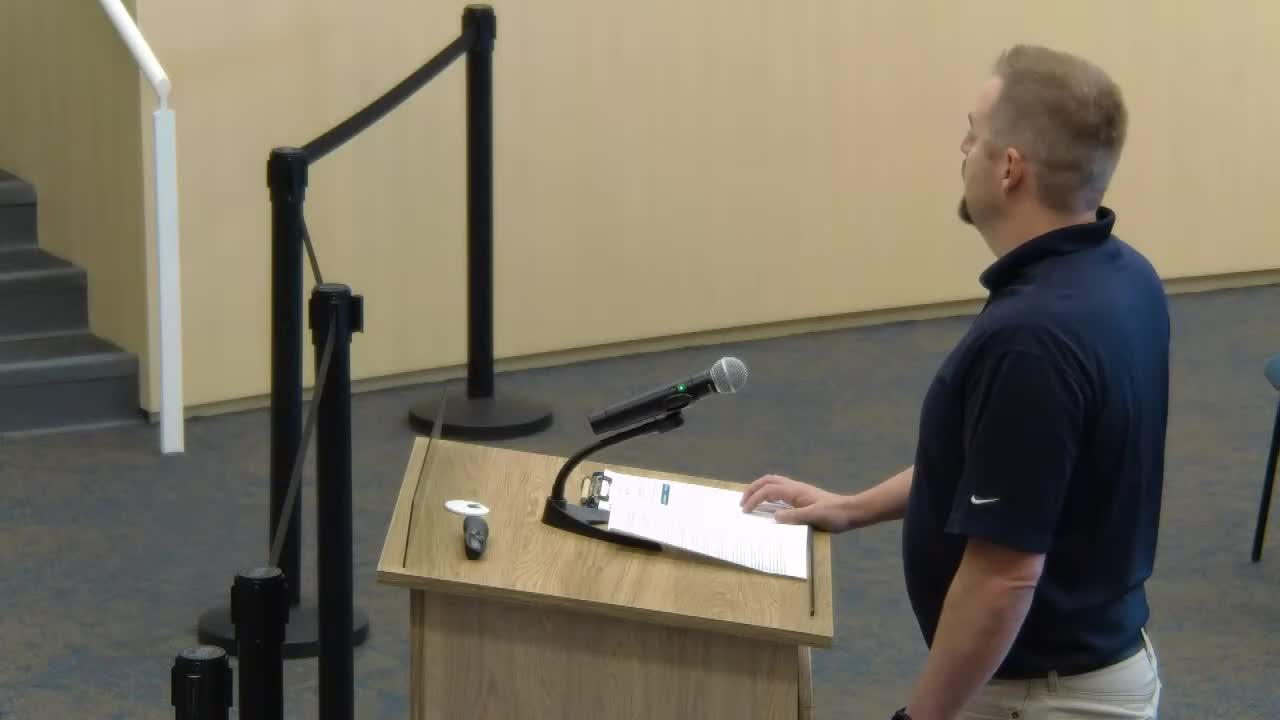Residents, volunteers urge Northglenn council to repeal park-use rule CR 54; council schedules executive session
Get AI-powered insights, summaries, and transcripts
Subscribe
Summary
A group of residents, volunteers and a parks advisory board leader urged the Northglenn City Council on Oct. 13 to repeal or substantially rewrite Resolution CR 54, the citys recent amendment to public facility standards that speakers said has been used to bar recurring, volunteer-run meal and outreach programs in parks.
A group of residents, volunteers and a parks advisory board leader urged the Northglenn City Council on Oct. 13 to repeal or substantially rewrite Resolution CR 54, the citys recent amendment to public facility standards that city speakers said has been used to bar recurring, volunteer-run meal and outreach programs in parks.
Speakers told the council the measure has been enforced against longstanding, peaceful volunteer meals and outreach at E.B. Raines Park and that the rules broad language risks excluding refugees, walking clubs, seniors, and other recurring community activities. Trevor Hosterman, president of the Northglenn Parks and Recreation Advisory Board, told the council he originally recommended the resolution but said the implementation has been "a profound misstep" and urged immediate repeal.
The debate matters because, speakers said, the ordinance's language defines group use in a way that can criminalize repeated, volunteer-led charitable activity. Pastor Dusty McIntosh, who identified himself as pastor of Next Step Church, said enforcement has been paused in the short term but warned the temporary pause "ends today" and asked council to remove the rule entirely. Lawyer and volunteer Brent Denny told council he had submitted a legal memorandum arguing CR 54 is constitutionally defective for vagueness, overbreadth and selective enforcement.
"This rule is being criminally enforced," Pastor Dusty McIntosh said, and volunteers who have been serving meals in the park face penalties despite, he said, peaceful and lawful conduct. Brent Denny said legal memoranda filed with the city outline "constitutional legal deficiencies" and referenced Supreme Court authority he said supports that view. Trevor Hosterman read language from the resolution, noting that the policy treats "group use" as five or more people meeting "on more than one occasion," and said that definition "criminalizes spontaneous and reoccurring community interactions."
Kathy Guy, who spoke in support of the volunteer programs, gave a personal account of meeting people who were homeless and described how ongoing, compassionate engagement by volunteers helped individuals in need. Speakers repeatedly asked the council to replace the numeric, recurrence-based limit with narrower, harm-focused language that targets documented damage or disruption rather than recurring fellowship and outreach.
Council members acknowledged the speakers and said the comments would be taken under advisement. During council communications later in the meeting, Council Member Walker said, "We hear you" and that public input on CR 54 would be considered. No repeal or amendment vote occurred at the Oct. 13 meeting.
As a next procedural step, the council voted unanimously to convene an executive session under the city charter for legal consultation about "managing public spaces" (charter section 4.5(d)) and to discuss a separate personnel matter under section 4.5(a). The mayor read the motion into the record and the motion passed on a unanimous vote of members present.
No ordinance repeal or other formal action on CR 54 was recorded during the meeting. Council members and staff indicated they would review the legal submissions and the public comments and that further council consideration or staff amendments could follow after the executive-session legal review.
Background and context: speakers said the contested portion of CR 54 treats a "group" as five or more people and defines recurring use as meeting "on more than one occasion." Several commenters said that language is overbroad and that enforcement had fallen disproportionately on volunteer groups feeding and aiding people experiencing homelessness. City staff and council did not assert new policy changes at the meeting; instead they scheduled further legal review.
For now, the immediate outcome is that residents and volunteer leaders left the Oct. 13 meeting having put the issue on councils agenda and having secured a promised legal review in executive session; any formal repeal, amendment, or guidance would require subsequent public council action.
